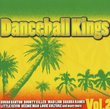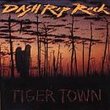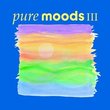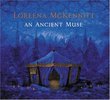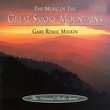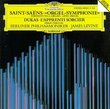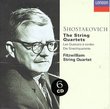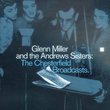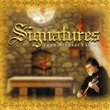| All Artists: Chadwick, Barber, Jarvi, Detroit Symphony Title: Symphony 3 / Vanessa Excerpts Members Wishing: 0 Total Copies: 0 Label: Chandos Release Date: 6/28/1994 Genre: Classical Styles: Opera & Classical Vocal, Ballets & Dances, Ballets, Historical Periods, Modern, 20th, & 21st Century, Symphonies Number of Discs: 1 SwapaCD Credits: 1 UPC: 095115925324 |
Search - Chadwick, Barber, Jarvi :: Symphony 3 / Vanessa Excerpts
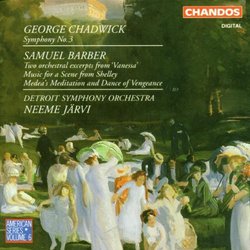 | Chadwick, Barber, Jarvi Symphony 3 / Vanessa Excerpts Genre: Classical
|
Larger Image |
CD DetailsSimilar CDs
Similarly Requested CDs
|
CD ReviewsPleasant and Dramatic David Saemann | 03/12/2008 (4 out of 5 stars) "Chadwick's 3rd Symphony is certainly an earful. It features vigorous harmonies and subtle orchestration, and doesn't contain a dull minute. The program notes suggest that Chadwick might have influenced Dvorak, and indeed there are moments in the orchestration that suggest the New World Symphony. Jarvi's performance is hearty and beautifully detailed, a truly fine job for a symphony that no longer has a performance tradition. There is an appealing warmth to the whole conception. When we turn to the Barber, though, Jarvi and the DSO turn in performances that are positively electric. None of the drama inherent in this music is slighted. These may be the best Barber performances I have heard since the famous Thomas Schippers/New York Philharmonic LP from the '60's. Add to that excellent sound, and you have a very winning CD." A Fine American Symphony in a Performance to Savor M. C. Passarella | Lawrenceville, GA | 10/14/2008 (4 out of 5 stars) "It's a shame that a little after this symphony was written, Chadwick entered a new phase during which he seems to have capitulated to the Liszt-Strauss-Wagner axis. He produced no more symphonies but concentrated instead on tone poems and operas, creating in the process a number of attractive works for orchestra, it must be admitted. Still, the Third Symphony shows real progress over the Second, charming though that work is, making you wish that Chadwick had had another go at a symphony. The Second betrays the conservative stewardship of Chadwick's teacher Carl Reinecke. However, in the Third, Chadwick moves comfortably into the high Romantic style of Brahms and Dvorak.
The first movement has an amiable bustle about it that recalls the "pastoral" symphonies of Brahms and Dvorak, the Third and Sixth, respectively, while the slow movement has an expansiveness and nostalgic tinge to it that might remind one of either composer. But it has a freshness and openness that is distinctly Chadwick's and that some commentators have found distinctly American. The scherzo is a highly contrapuntal saltarello with a trio that returns to the vein of nostalgia found in the second movement. It's attractive, but the most memorable movement for me is the finale, with a big, horn-driven, syncopated first melody and a stately second tune that recalls Elgar--except that Elgar hadn't yet written the works that won him international fame by the time Chadwick's symphony debuted. The two melodies combine thrillingly in a long, ecstatic coda. I really think this symphony could please concert goers again if conductors would take a chance on programming it. Till then, we have this very good performance from Jarvi and Detroit to savor. Of the Barber pieces on the disc, I'm most grateful for the excerpts from "Vanessa." They're not as available as the other works--apart from recordings of the complete opera--and especially in "Medea's Meditation," the rather reverberant recording takes some of the bite and vigor out of this vigorous music, good though the performances are." |

 Track Listings (8) - Disc #1
Track Listings (8) - Disc #1
